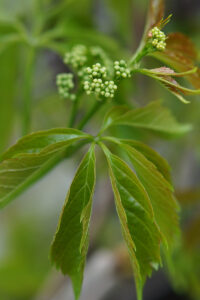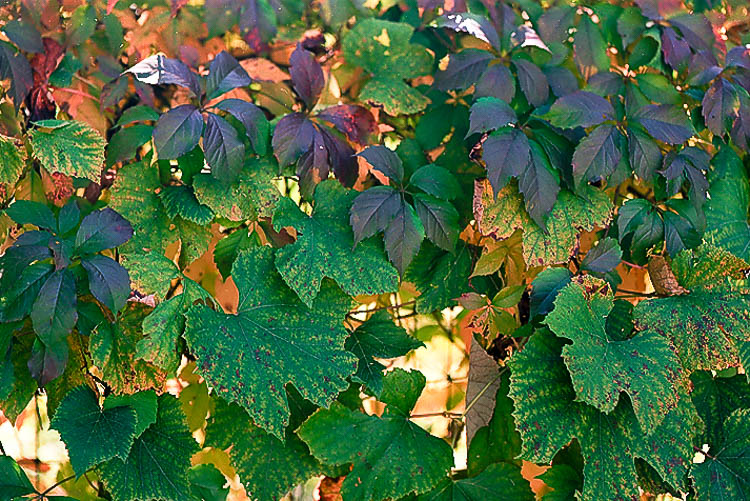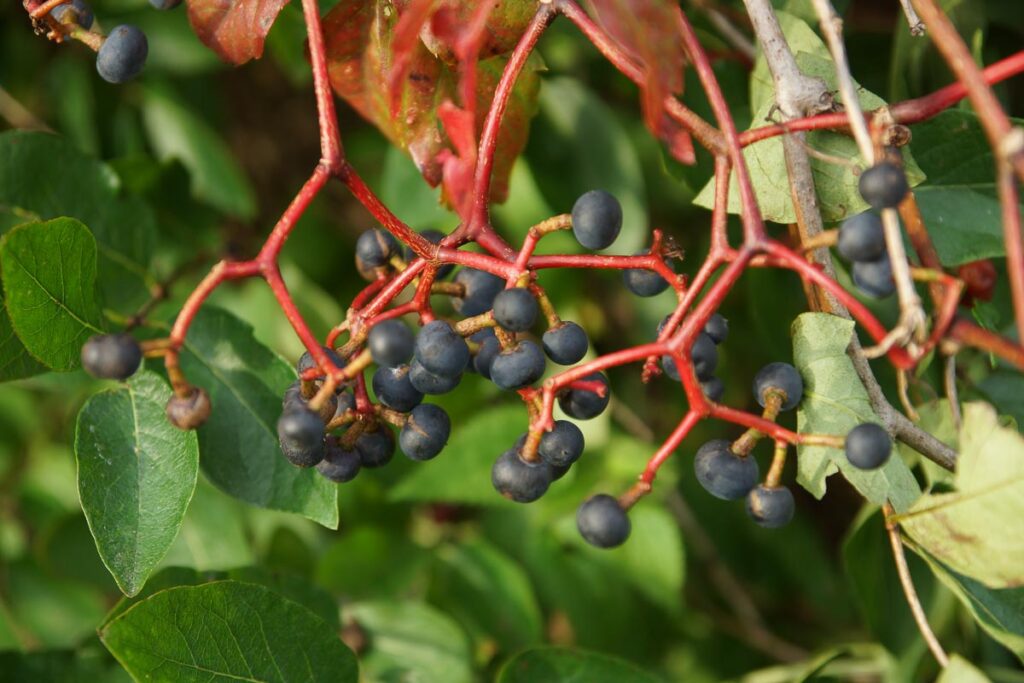
Virginia creeper (Parthenocissus quinquefolia)— also called woodbine–are vines that are not restricted to wetlands. They are found in our forests, thickets, backyards, and swamps. There are two species in Wisconsin. One (P. quinquefolia) secretes an adhesive from its disks on its tendrils and can climb brick walls like Boston ivy, the other (P. vitacea) has regular wrapping tendrils only.
The photo shown here illustrates the Virginia creeper’s amazing fall colors, thought to attract birds to their nutritious fruit. I use it in my yard to provide a screen, cover up my rusty wire fence and provide cover and food for wildlife such that there is in Oshkosh. You’ll notice mixed in with my backyard Virginia creeper’s leaves are those of its cousin, domestic grapes (Vitus vinifera). The grapes don’t do as well in the mixed shade, so I planted the creepers, and they are doing amazingly well. Unlike grapes, Virginia creeper berries are inedible for humans and toxic in large quantities.


